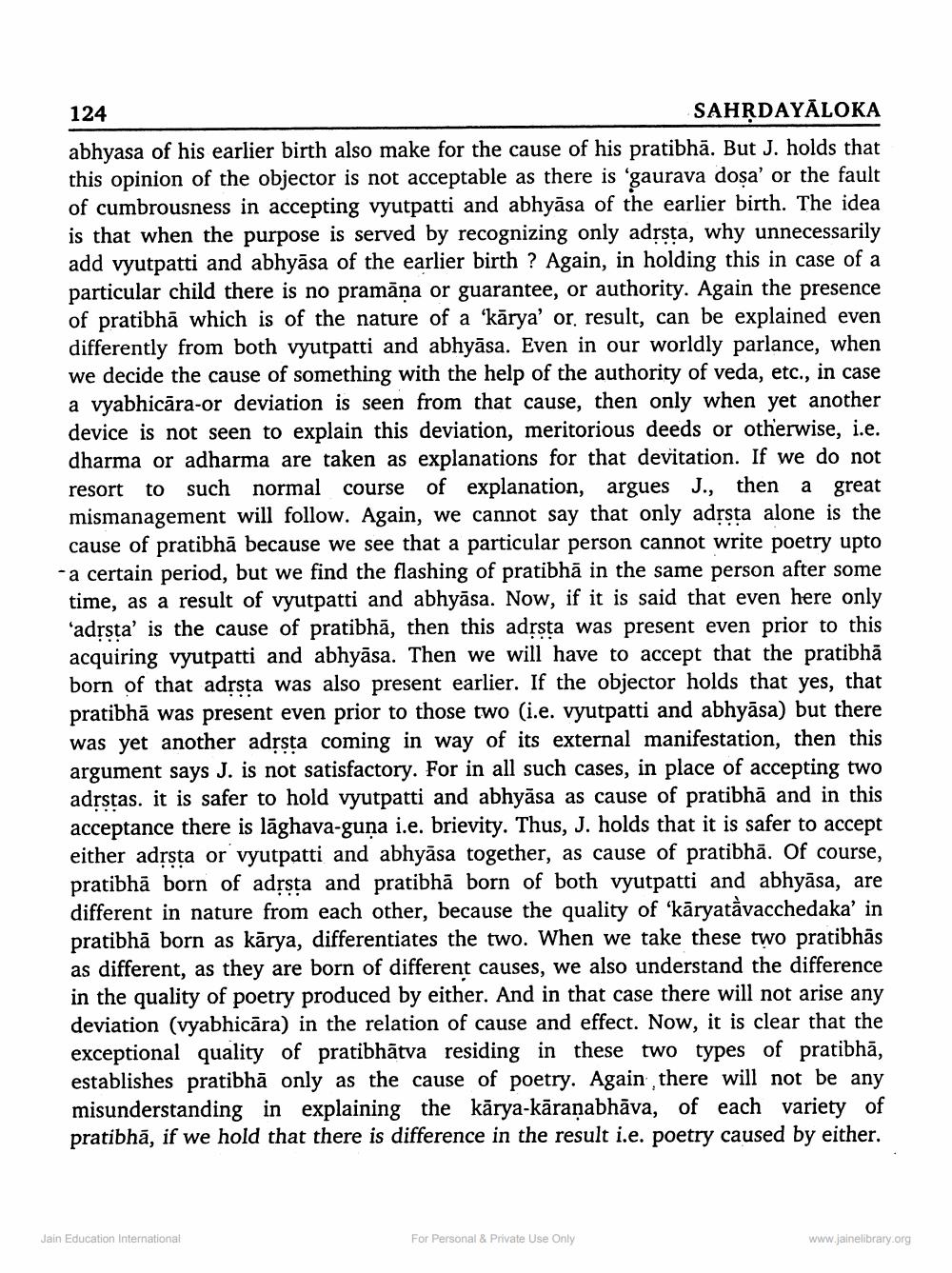________________
124
SAHRDAYĀLOKA
abhyasa of his earlier birth also make for the cause of his pratibhā. But J. holds that this opinion of the objector is not acceptable as there is 'gaurava dosa' or the fault of cumbrousness in accepting vyutpatti and abhyāsa of the earlier birth. The idea is that when the purpose is served by recognizing only adrsta, why unnecessarily add vyutpatti and abhyāsa of the earlier birth ? Again, in holding this in case of a particular child there is no pramāna or guarantee, or authority. Again the presence of pratibhā which is of the nature of a 'kārya' or result, can be explained even differently from both vyutpatti and abhyāsa. Even in our worldly parlance, when we decide the cause of something with the help of the authority of veda, etc., in case a vyabhicāra-or deviation is seen from that cause, then only when yet another device is not seen to explain this deviation, meritorious deeds or otherwise, i.e. dharma or adharma are taken as explanations for that devitation. If we do not resort to such normal course of explanation, argues J., then a great mismanagement will follow. Again, we cannot say that only adrsta alone is the
cause of pratibhā because we see that a particular person cannot write poetry upto -a certain period, but we find the flashing of pratibhā in the same person after some time, as a result of vyutpatti and abhyāsa. Now, if it is said that even here only 'adrsta' is the cause of pratibhā, then this adrsta was present even prior to this acquiring vyutpatti and abhyāsa. Then we will have to accept that the pratibhā born of that adrsta was also present earlier. If the objector holds that yes, that pratibhā was present even prior to those two (i.e. vyutpatti and abhyāsa) but there was yet another adrsta coming in way of its external manifestation, then this argument says J. is not satisfactory. For in all such cases, in place of accepting two adrstas. it is safer to hold vyutpatti and abhyāsa as cause of pratibha and in this acceptance there is lāghava-guna i.e. brievity. Thus, J. holds that it is safer to accept either adrsta or vyutpatti and abhyāsa together, as cause of pratibhā. Of course, pratibhā born of adrsta and pratibhā born of both vyutpatti and abhyāsa, are different in nature from each other, because the quality of 'kāryatăvacchedaka' in pratibhā born as kārya, differentiates the two. When we take these two pratibhās as different, as they are born of different causes, we also understand the difference in the quality of poetry produced by either. And in that case there will not arise any deviation (vyabhicāra) in the relation of cause and effect. Now, it is clear that the exceptional quality of pratibhātva residing in these two types of pratibhā, establishes pratibhā only as the cause of poetry. Again there will not be any misunderstanding in explaining the kārya-kāraṇabhāva, of each variety of pratibhā, if we hold that there is difference in the result i.e. poetry caused by either.
Jain Education International
For Personal & Private Use Only
www.jainelibrary.org




